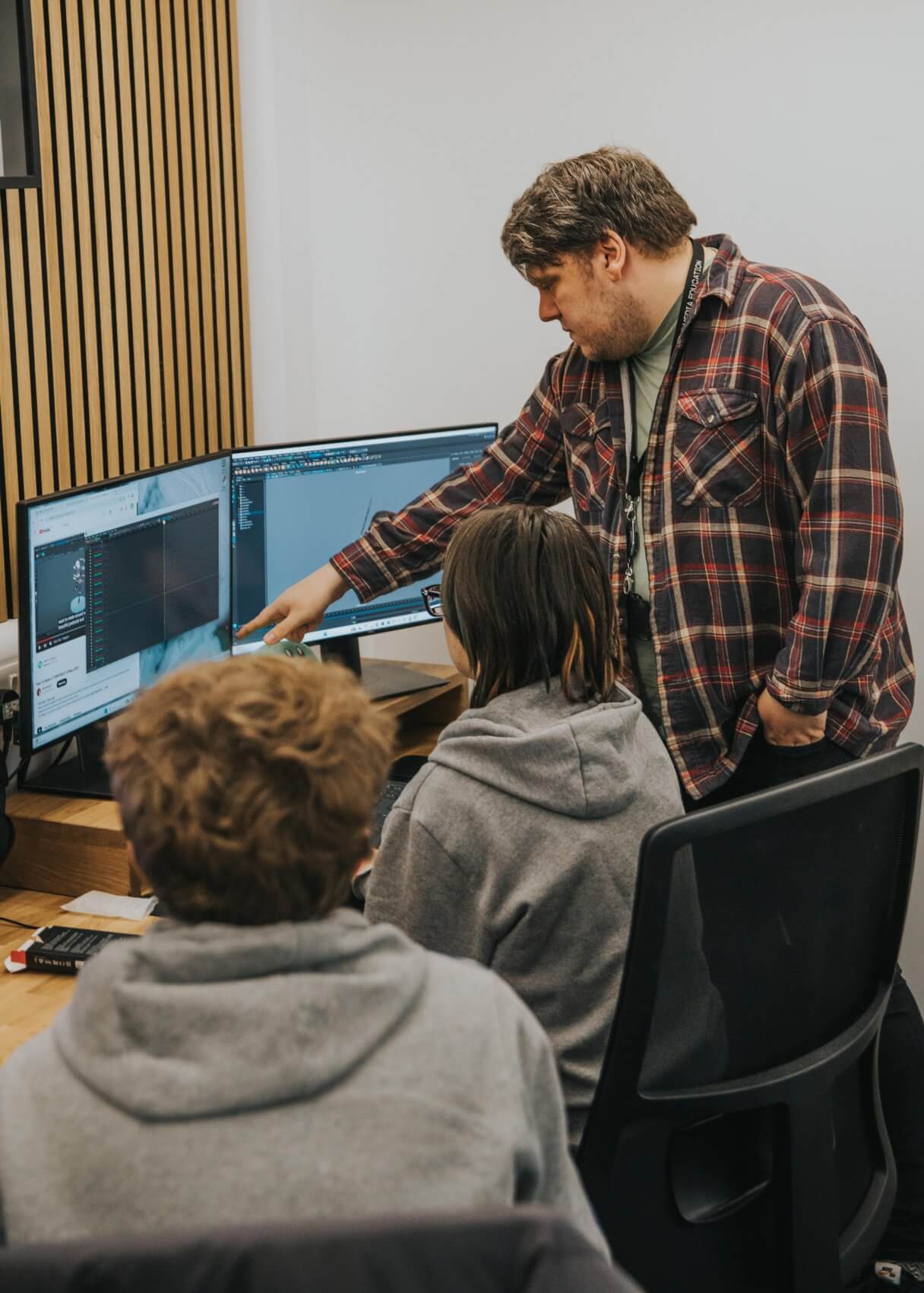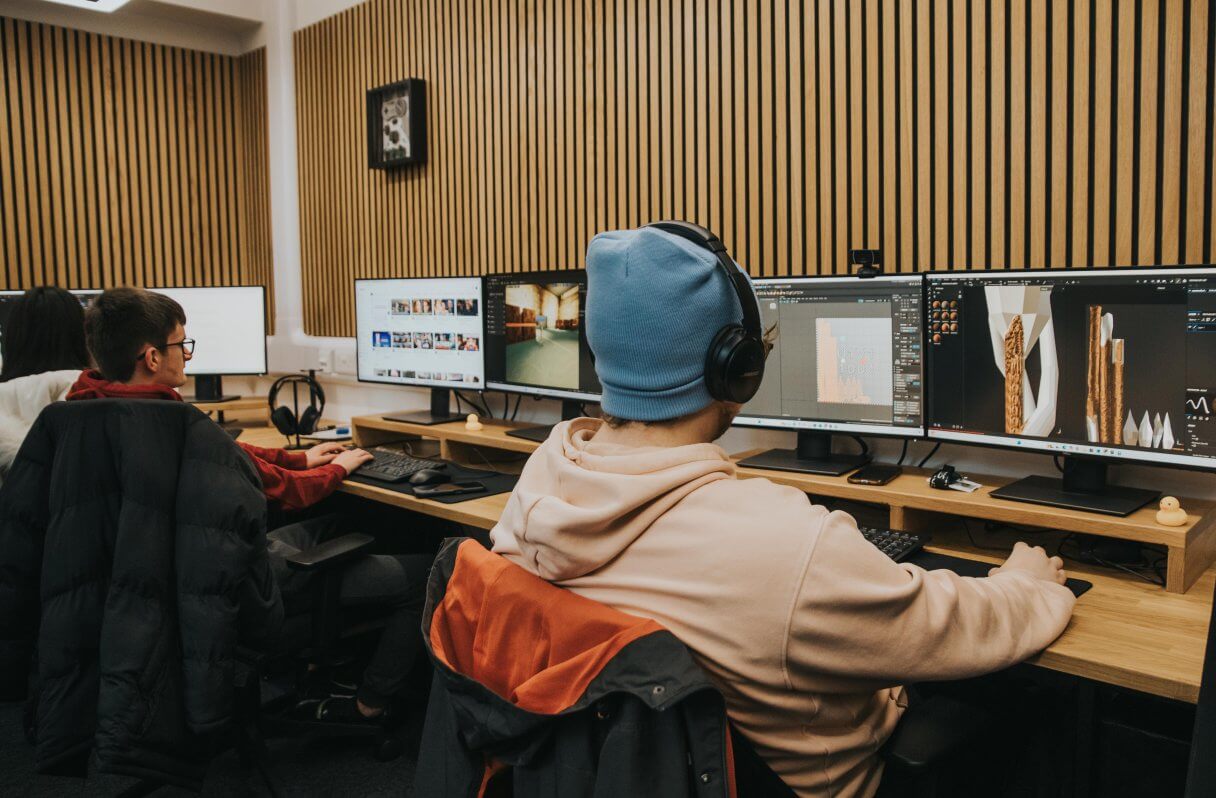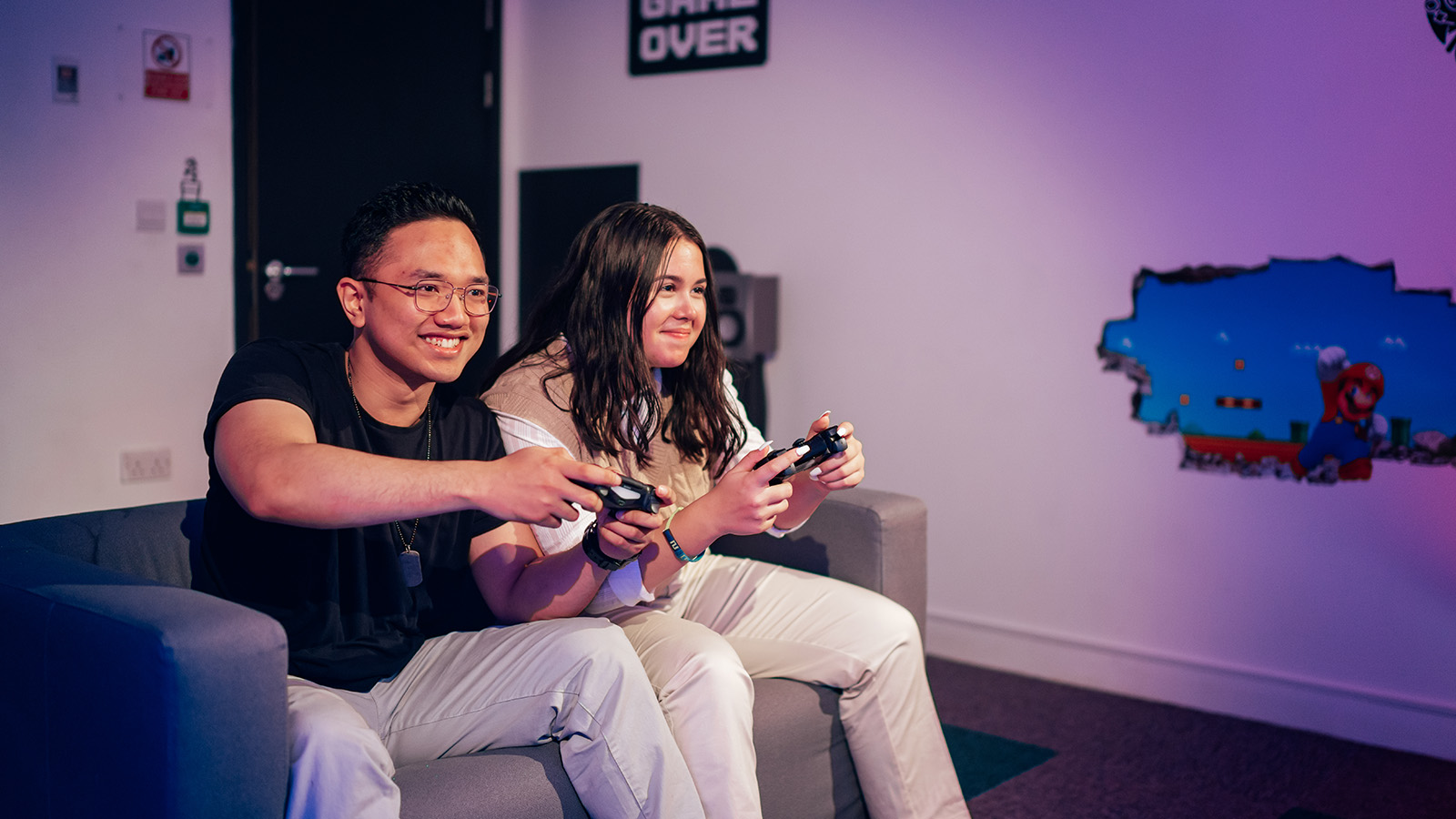TWO-YEAR ACCELERATED DEGREE:
£11,750 per year
THREE-YEAR DEGREE:
£9,790 per year
The annual tuition fee is fully funded via Student Finance England for eligible home-fee students.
TWO-YEAR ACCELERATED DEGREE:
£9,000 per year
You may also be eligible for a bursary or discount, please enquire with our friendly Admissions Team.
THREE-YEAR DEGREE:
£7,500 per year
You may also be eligible for a bursary or discount, please enquire with our friendly Admissions Team.
TWO-YEAR ACCELERATED DEGREE:
£11,750 per year
THREE-YEAR DEGREE:
£9,790 per year
The annual tuition fee is fully funded via Student Finance England for eligible home-fee students.
TWO-YEAR ACCELERATED DEGREE:
£11,750 per year
THREE-YEAR DEGREE:
£9,790 per year
TWO-YEAR ACCELERATED DEGREE:
£11,750 per year
THREE-YEAR DEGREE:
£9,790 per year
The annual tuition fee is fully funded via Student Finance England for eligible home-fee students.
TWO-YEAR ACCELERATED DEGREE:
JANUARY 2026
International students (non-EU/EEA/Swiss)*: £16,500 per year
EU/EEA/Swiss students*: £11,440 per year
FROM SEPTEMBER 2026
International students (non-EU/EEA/Swiss)*: £17,000 per year
EU/EEA/Swiss students*: £11,440 per year
THREE-YEAR DEGREE:
International students (non-EU/EEA/Swiss)*: £16,250 per year
EU/EEA/Swiss students*: £9,535 per year
*Student visa required
TWO-YEAR ACCELERATED DEGREE:
International students (non-EU/EEA/Swiss)*: £17,000 per year
EU/EEA/Swiss students*: £11,440 per year
THREE-YEAR DEGREE:
International students (non-EU/EEA/Swiss)*: £16,250 per year
EU/EEA/Swiss students*: £9,535 per year
*Student visa required
TWO-YEAR ACCELERATED DEGREE:
JANUARY 2026
International students (non-EU/EEA/Swiss)*: £16,500 per year
EU/EEA/Swiss students*: £11,440 per year
FROM SEPTEMBER 2026
International students (non-EU/EEA/Swiss)*: £17,000 per year
EU/EEA/Swiss students*: £11,440 per year
THREE-YEAR DEGREE:
International students (non-EU/EEA/Swiss)*: £16,250 per year
EU/EEA/Swiss students*: £9,535 per year
*Student visa required
TWO-YEAR ACCELERATED DEGREE:
International students (non-EU/EEA/Swiss)*: £17,000 per year
EU/EEA/Swiss students*: £11,440 per year
THREE-YEAR DEGREE:
International students (non-EU/EEA/Swiss)*: £16,250 per year
EU/EEA/Swiss students*: £9,535 per year
*Student visa required
TWO-YEAR ACCELERATED DEGREE:
JANUARY 2026
International students (non-EU/EEA/Swiss)*: £16,500 per year
EU/EEA/Swiss students*: £11,440 per year
FROM SEPTEMBER 2026
International students (non-EU/EEA/Swiss)*: £17,000 per year
EU/EEA/Swiss students*: £11,440 per year
THREE-YEAR DEGREE:
International students (non-EU/EEA/Swiss)*: £16,250 per year
EU/EEA/Swiss students*: £9,535 per year
*Student visa required
January and September
January and September
January and September
January and September
September
Offers will be made to applicants who are expected to meet, or exceed the entry requirements below, in addition to supplying a personal statement:
SAE Institute will accept non-standard entry applications, which do not meet the 72 UCAS points or equivalent, and/or maths/English at level 2 or equivalent as required:
Students whose first language is not English will need a qualification that demonstrates competence in English, equivalent to UK GCSE (Level 2) grade 4 (c) or above.
Equivalent qualifications can be accepted, where these qualifications have been verified by ENIC and are adopted widely within the UK Higher Education sector, including:
- Listening – 17
- Writing – 17
- Speaking – 20
- Reading – 18
- International ESOL C1 Expert – pass in all four components
- International ESOL SELT B2 (Listening, Reading, Writing, Speaking) – minimum 33 in all components
- ESOL Integrated Skills in English II – pass in all components

WHY CHOOSE THIS COURSE?
- Learn the core languages powering the games industry
- Build gameplay systems, AI, physics, tools and more
- Gain deep experience in Unity and Unreal Engine
- Learn C#, C++, Blueprints and scripting workflows
- Study algorithms, data structures and optimisation
- Work on real prototypes every trimester
- Collaborate with Artists and Designers like a real studio
- Learn multiplayer, networking and platform porting
- Taught by experienced Games Programmers
- Graduate in two years on the accelerated route
WHAT YOU WILL LEARN?
- Program gameplay systems using C# and C++
- Work with Unity for indie, mobile and XR projects
- Use Unreal Engine Blueprints and C++ scripting
- Build AI using behaviour trees and state machines
- Apply algorithms and data structures to real problems
- Implement procedural generation for levels and assets
- Optimise performance for PC, console and handheld platforms
- Port games to devices like PlayStation, Steam Deck and mobile
- Build multiplayer features and networking systems
- Produce a strong technical portfolio with multiple prototypes

YOUR GAMES PROGRAMMING JOURNEY BEGINS TODAY
What you can expect from your Games Programming degree
Always wanted to learn to make games as a games programmer? With SAE’s games programming degree, you’ll take part in an immersive learning experience – uniquely tailored to aspiring games programmers. Integrating fundamental theories with hands-on practice, you’ll set yourself up for success as you prepare for a thriving career from the moment you arrive. Available in a 2-year accelerated format or a more standard 3-year option across all SAE campuses, you can select the study calendar that best suits your lifestyle.
Throughout this unique and practical focused games programming course, you’ll refine industry-specific skills, gaining technical expertise and practical proficiency. During your time as an SAE student, you’ll have unlimited access to the industry-standard software in our state-of-the-art computer labs, meaning you’ll gain a good working knowledge of software programmes like Unreal Engine 5, Unity3D, Visual Studio and Maya, and programming languages C++ and C#.
In addition to mastering programming techniques, you’ll gain vital project management skills, refine your academic writing abilities, and learn how to problem-solve effectively to ensure optimal project results. Over the course of your game programming degree, you’ll also benefit from the mentorship of SAE’s experts, who are all seasoned professionals in the industry with a vast amount of knowledge to share.
Levelling up
As part of your degree in games programming, you’ll work with your fellow games programme degree students, as well as those in other creative disciplines such as music, film and animation, on a range of projects that mirror real-world scenarios. This will build your teamwork skills, enrich your professional portfolio and provide you with an extensive network of creatives to stay in touch with after graduation.
At the end of your studies, you’ll have gained essential knowledge across game engines, mechanics and mechanisms and will be well versed in design principles, composition algorithms, artificial intelligence and many other industry-relevant topics. So, whether your dream is to become a game designer, analyst, programmer or writer, it’s definitely game on at SAE.
START MY GAMES PROGRAMMING AUDIO JOURNEY
Course FAQs
What is the Games Programming degree at SAE?
A technical degree focused on building gameplay systems, AI, tools, engine scripting and real-world game functionality.
Is this suitable for beginners?
Yes, you don’t need advanced programming experience to begin. The course builds foundational coding skills first and progresses steadily.
Is the course creative or technical?
Primarily technical, but also creative. You learn coding logic, problem solving and how to turn ideas into playable systems.
How is the course taught?
Through hands-on programming, engine development, technical exercises and prototype-driven assignments.
Which study routes are available?
- Two year accelerated degree, UCAS code GW12
- Three year standard degree, UCAS code GC31
- Year 1
You learn programming basics, C#, object-oriented design, Unity development, algorithms and data structures. - Year 2
You progress to C++, Unreal Engine development, AI, optimisation, networking, porting and a Major Project.
This route is fast-paced and ideal for students who want to graduate and begin working sooner.
-
- Year 1
Fundamentals of programming, introductory Unity, C# and basic software logic. - Year 2
Build deeper skills in gameplay systems, physics, tools design, Unreal Engine and middleware workflows. - Year 3
Advanced topics, extensive prototype work, platform porting, optimisation and a Major Project that showcases your full stack programming ability.
This route allows extra time for experimentation, deeper understanding and comprehensive portfolio building.
- Year 1
What facilities do students use?
High-spec development labs, powerful PCs for Unity and Unreal Engine work, collaborative coding spaces and specialist game development hardware.
Do I need my own computer?
No, the campus provides everything you need. Many students choose to bring laptops for personal practice.
What software do students use?
Unity, Unreal Engine, Visual Studio, GitHub, FMOD for audio integration, debugging and optimisation tools.
Do students get access to exclusive software deals?
Yes, SAE students receive exclusive educational licences and industry software discounts, giving access to professional tools at reduced or free student rates.
Will I have access to any game development software outside of campus?
Yes. You can access game development software for free on campus. When working off campus, you can take advantage of student discounts to purchase or subscribe to relevant software for personal use.
Academic support, code mentors, learning resources, wellbeing services, mental health support and careers guidance are available throughout your studies.
Domestic Students
- Level 3 qualification or equivalent
- GCSE English and Mathematics at grades A to C, or 9 to 4, or equivalent
- Personal statement
- No portfolio required
Non-standard entry may include:
- A creative or technical portfolio
- A short academic essay
- Relevant experience
International Students
Entry requirements vary by country and include English language proficiency where applicable.
To view our full entry requirements, please click here.
Is Student Finance available?
Yes, for both the two year and three year degrees.
How are fees paid?
Through Student Finance, direct payment or approved funding routes.
Are scholarships available?
Yes. Scholarships and bursaries may be available, and the best way to access these is to apply for the course first. Even after you apply, you can still apply for scholarships.
Are there extra costs?
Optional costs include personal devices, external storage, software subscriptions and conference travel.
Graduates progress into roles such as: Gameplay Programmer, AI Programmer, Tools Programmer, Engine Programmer, Technical Designer, Networking Engineer, Graphics Programmer and XR Developer.
Programming skills also transfer into app development, software engineering, simulation and interactive media.
- Visit the UCAS website
- Search for Games Programming at SAE
- Use UCAS code GW12 for the two year accelerated degree
- Use UCAS code GC31 for the three year standard degree
- Upload your qualifications and personal statement
- Submit your application
- Receive your offer
- Accept your place through UCAS
- Go to the SAE application form:
https://www.sae.edu/gbr/form/application-form/ - Complete the online application form and submit your details.
- Once your application is received, a member of the SAE admissions team will contact you to discuss your application and next steps.
- If your application is successful, you will be offered a place on the course.
- Accept your offer and complete enrolment, with the SAE team supporting you throughout the process and staying in contact with you right up until your start date.
- Start your course and begin learning, collaborating and taking the next step in your Games Programming career.
Top tip: For peace of mind, applying directly to SAE is often faster than applying through UCAS and is ideal for international or late applicants.
Any questions?
For any questions regarding our courses or if you’d like more information on how to apply for our Games Programming degree at SAE, please contact our Enquiries Team on 03330 112 315 or email ukadmissions@sae.edu.































